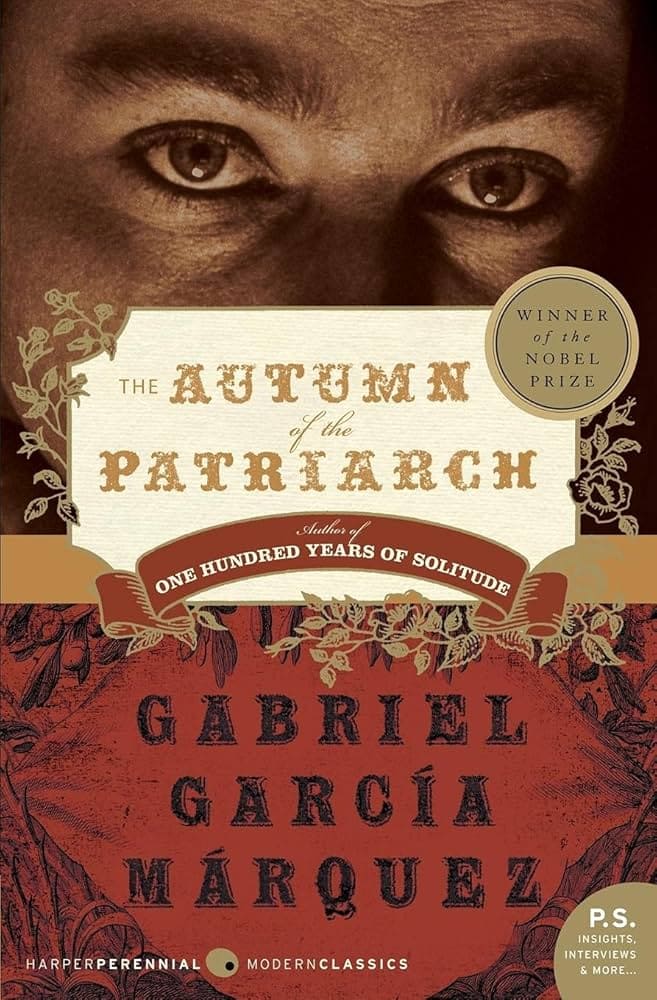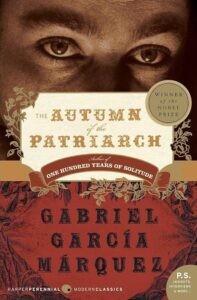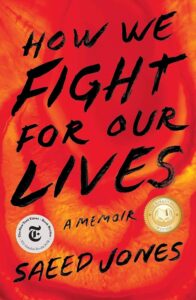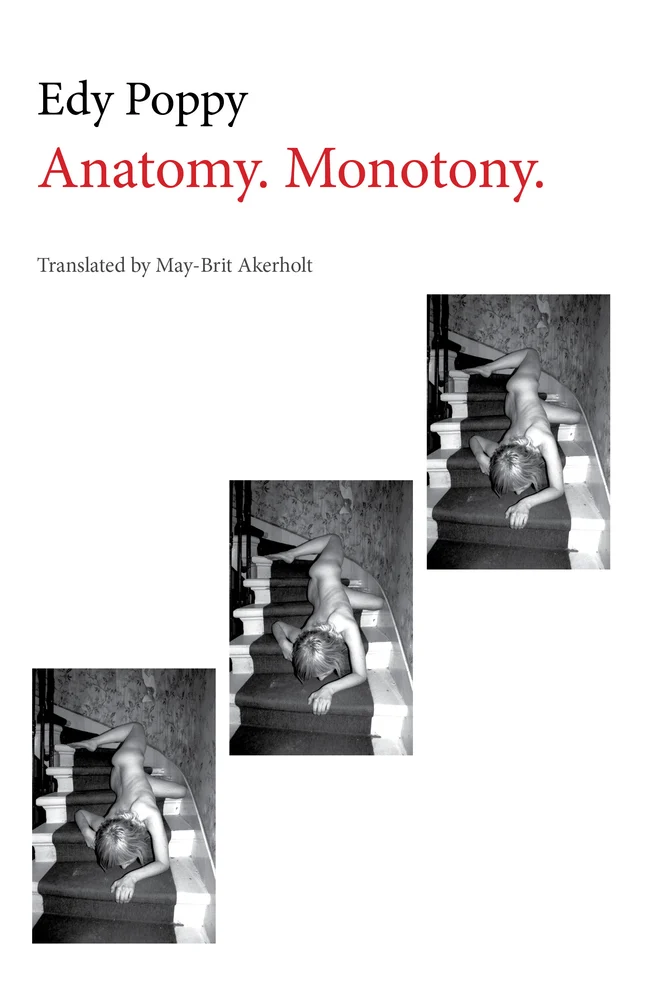Curated by SAM SPRATFORD
July in Western Massachusetts is a month of heightened sensation. Perceptions are focused by the burning and buzzing heat, until it bursts in its own excess, dripping or pouring from the sky. It is an excess that ferments rather than rots, and it is what makes July so intoxicating. The onset of climate change, bringing merciless humidity and monsoon weather patterns, has deepened and darkened this character. Amid this, our Editorial Assistants AIDAN COOPER, CIGAN VALENTINE, and SIANI AMMONS have been reading books that match the month’s potency: storytelling that dazzles, prose that floods and sweeps away the sane, and historical truths delivered in lightning-bolt cracks.
Gabriel García Márquez’s Autumn of the Patriarch; recommended by Editorial Assistant Aidan Cooper
Described as “a poem on the solitude of power” by its author, Autumn of the Patriarch is a book that feels as revolting as it is captivating. Through his desperately tumbling, thick, and unforgiving language, Gabriel García Márquez paints a grotesque portrait of an unnamed general, a totalitarian dictator, whose influence is that of a god. With a flick of his hand, he seems to push celestial bodies into eclipse, he turns human beings to dust, he can change the tide at will—everything in his reach warps to satisfy his desires, with the exception of his loneliness. This loneliness makes the book a complicated one to sit with. Not only do we witness the general commit countless moral atrocities, but he also becomes prisoner to his own political might; locating where the authority actually resides in the general’s state is messy and difficult. The reader also stays adrift, unlocalized in any single voice. We see the general through his own eyes, or through the eyes of his wife, or his mother, or from the people who serve him, each perspective occurring often in the same sentence. And that is the primary force of Autumn of the Patriarch: the prose. In this 255-page book, García Márquez uses only 124 sentences; as you read, you are left gasping for air, desperate for a pause, desperate to escape the complete and monstrous authority that the general has over you. I have never read a book so profligate, so willing to abandon the threads of here-and-now to surround and drown me in its world. Because generally, what this book details—in horrifying and grueling and orchestral specificity—are the consequences of concentrating power in one single man. It is a warning, and a valuable one, epitomizing the electric relationship between language and power. This is García Márquez at his most unflinching, at his most poetic, at his most arresting. A universal masterpiece.
Edwidge Danticat’s Krik! Krak!: reccommended by Editorial Assistant Cigan Valentine
Edwidge Danticat’s story collection Krik? Krak! is a book I return to every time I need to be reminded of the potency of short fiction. Krik? Krak! narrates the lives of nine Haitian individuals, mostly women, with an epilogue revealing how the characters are connected to each other.
My favorite story of the collection, “Nineteen Thirty-Seven,” blurs the line between historical fiction and fantasy. The piece narrates the Parsley massacre and its aftermath, in which tens of thousands of Haitians were massacred by Dominican troops, and establishes a thematic thread that weaves its way through the collection: how generational trauma is inherited, and how it evolves into a different beast in each new person it passes through. In “Nineteen Thirty-Seven,” a daughter comes to terms with the violence of her mother’s incarceration and her impending death, while trying her hardest to preserve the story of her resistance.
In Krik? Krak! women have wings and men can fly, if only for a moment. Flight is ever prevalent and always dangerous, a testament to how painfully each character is trapped in their history while constantly wishing to escape it. In the face of death, the characters’ suffering is both collective and highly individual, as they each must find their own way to navigate unspeakable loss. However, there are lingering moments of love and beauty preserved in Danticat’s writing. These stories reimagine the mythology and magic of Haiti and come together to form a book that is richly unforgettable.
Saeed Jones’ How We Fight For Our Lives: recommended by Editorial Assistant Siani Ammons
“A joke I used to repeat in those days was: Why be happy when you can be interesting? I knew how to be interesting. There was power in being a spectacle, even a miserable spectacle. The punch and the line. Interesting: sentences like serrated blades, laughter like machine-gun rounds, a drink in one hand, a borrowed cigarette in the other. If you could draw enough glances, any room could orbit around you.”
How We Fight For Our Lives is one of those once-in-while books that draws your entire world into its orbit. Jones’ masterful memoir unfurls like a flower, containing unthinkable multitudes and mythologies erected around Black, queer, and Southern identities. His detailed pain, failed desires, and happiness made me cry tears “that rip through you, like storm-painted gusts instead of mere raindrops.” To me, How We Fight For Our Lives depicts more than a singular storyline or life; instead, it is a living, beating heart that speaks to the reader, demanding radical care for the lives of both Jones and his family members. Through its unflinching expression of Black queerness and the heartbreak that follows, we learn about “the sweetness we deny ourselves because the world is wailing.” Jones embraces hurt and the tenderness that follows pain, and the narratives he weaves around his late mother bloom into a love letter for single motherhood that transcends their individual life stories. His recollections of his fervent Evangelical grandmother demand sympathy, as they reveal the complexity and cruelty of religious devotion. Through lyrical prose and skillful metaphors, Jones embraces the slow violence that Black and brown queer people face, as when “the most beautiful man [he] ever kissed [tried] to kill [him].” There was not a single moment where Jones’ storytelling failed to entrance me, nor a sentence that was not delicious.







